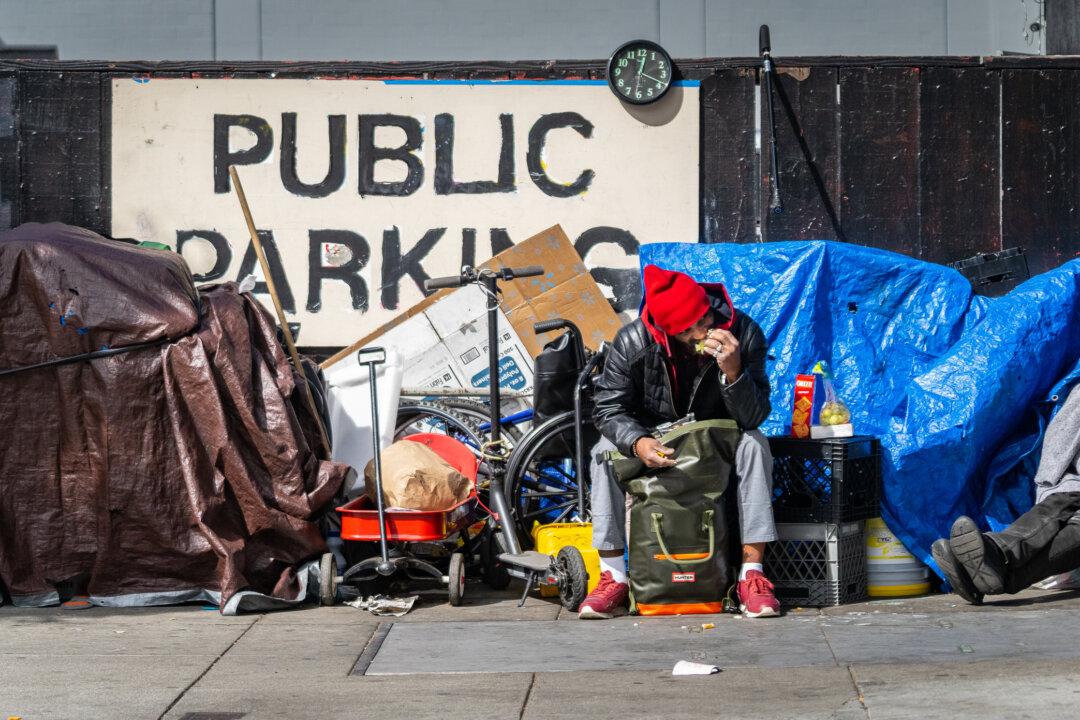Nearly two-thirds of San Francisco voters surveyed say they would vote for a ballot measure that will require those suspected of suffering from substance abuse while receiving cash handouts from the city to submit to drug tests and accept treatment.
Introduced by San Francisco Mayor London Breed and slated for the March 5 primary ballot, Proposition F will ask voters if the city should change the rules for those receiving cash aid from the County Adult Assistance Program—serving adults under 65 years old with no dependents.





